Anthony Metivier's Blog, page 14
October 7, 2021
Is Intelligence Fixed? The Surprising Answer
 Is intelligence fixed? Of course not.
Is intelligence fixed? Of course not.
Think about artificial intelligence. It’s been improving each and every year.
And so has human intelligence.
As you’ll see, this has been proven by looking at the improvement of IQ scores over the years.
However, there is a catch. Lately, IQs have been slipping again.
This means that not only can your intelligence change. There are guaranteed ways you can improve it.
You just need to be willing to set specific learning goals and then show up to complete them.
Because if you don’t, your intelligence can degrade.
So if you’ve been hoping to get smarter, stick around.
On the page we’re taking a deep dive into malleable intelligence and putting the power of change directly into your hands.
Is Intelligence Fixed?In Genetics and Education, Arthur Jensen famously said that “intelligence, by definition, is what intelligence tests measure.”
In other words, intelligence cannot be fixed because it is the tests that define it, not some intrinsic quality of the brain.
And since tests are changing all the time, this means that the definition of intelligence also changes.
Updated definitions are normal in science. Even the definitions of crystal and fluid intelligence have changed over time as new ways of looking at the topic have evolved.
What Exactly Does “Intelligence” Mean?Of course, the word “intelligence” needs more definition. According to James Flynn in What Is Intelligence?, we need to look at a bare minimum of six categories:
Mental acuity (dealing with problems you’ve never seen before)Mental habits (ability to learn new things and apply them, like memorizing new vocabulary and using it in context)Mental attitudes (the willingness to apply oneself to developing mental habits)Knowledge accumulation (the more you know, the more you can know)Assimilation speed (as you develop pattern recognition, you’ll learn faster)Memory (ability to access information)
Taking on new challenges and learning new things automatically changes your intelligence. The more you take on over time, the more flexible your intelligence can become.
In each of the definitions of intelligence Flynn lists, change is a given. Even by virtue of seeing a problem you’ve never encountered before, your intelligence undergoes change.
How could it not?
So, when we’re asking questions like, is IQ genetic or learned?
The answer doesn’t matter.
Here’s what does:
Intelligence undergoes constant change.
We know this because new information is always coming at you and always exercising your memory. Even your dreams can cause your intelligence to change as they bring you new insights about yourself or trigger old memories from your past.
The real question comes down to the category of mental attitude, which itself boils down to the question of mental strength.
What Does Malleable Intelligence Mean?Have you ever heard about neuroplasticity? It means that our neurons literally reorganize and “rewire” themselves.

In other words, the structures of our brain change the brain as they grow.
Since “malleable” means “changeable,” then the meaning of malleable intelligence is changing intelligence.
Because we know that the brain physically changes, so too must the content of the brain transform. And it’s only because the brain is malleable (changeable) that we’re able to learn anything at all.
As discussed in the Handbook of Intelligence:
“IQ scores can change significantly in a short period of time but, more importantly… targeted interventions can improve performance on the cognitive processes assessed in intelligence measures, contradicting the belief that our intelligence is fixed.”
Echoing Flynn, the authors of this handbook talk a lot about the importance of mindset. If you want to change your attitude you can.
The Attitude Of Parents Is CriticalResearchers have shown that how parents think about the malleability of intelligence deeply influences their children. Parents who express to their children that their intelligence can be shaped help actualize positive transformation.
Similar studies have shown that teachers and professors have the same effect on their students. If the instructor believes that your intelligence is fixed, then they might influence you into behaving as if it is.

However, if they know that intelligence is malleable, they are much more likely to help you improve your level of intelligence.
A Sad Personal Example Of A Negative ProfessorIt was my third year as a teaching assistant during my PhD. I was teaching under the main professor of a course called The Networked Imagination. It was all about the history of the Internet.
On the first day, the professor I was assisting stood in front of over 500 students in the lecture hall. She said that 90% of them
would fail. 50% of them wouldn’t even pass the first exam.
Crazy, right?
It is, but it happens in schools all the time.
And it needs to stop.
Is There Hope?The scientific finding that we influence each other’s ability to improve our intelligence means one thing:
Parents and teachers in particular must be educated about intelligence and also think critically about the role it plays in the daily lives of their families.

However, in another book called How to Improve your Mind, Flynn acknowledges a very sad fact:
“There will never be a time when everyone wants to think critically.”
This is especially sad given the free availability of some of the best critical thinking strategies for everyone.
How to Increase Your IQ (Starting Today)I agree with Flynn that critical thinking is the key to improving your intelligence. Even if your IQ does change with age, you’ll still benefit from being able to question the role of intelligence in your life.
How do you develop solid critical thinking skills? You can start by educating yourself about:
Analytical thinkingLogical vs. rational thinkingReflective thinkingIndependent thinkingReasoning skillsObjective vs subjective reasoningAnd that’s just for starters. You can also complete some critical thinking exercises and read critical thinking books.
But of all of Flynn’s six categories, memory is probably the most important if you want to improve your IQ.

If IQ can be improved, increasing your memory skills is probably the most likely way to do it.
Memory Isn’t Fixed EitherOne of the fastest ways to improve each of the six categories of intelligence identified by Flynn is to develop your memory skills.
In Memory and Intelligence by Jean Piaget and Bärbel Inhelder, the authors make it very clear that we need to take action in order to learn.
They found that children who make associations based on stories learned faster and recalled more with greater accuracy.
If you’re interested in using memory techniques to boost your intelligence, it’s a good idea to start small.
For example, you can learn to memorize the planets in order or size or distance from the sun.
Or you could commit all the presidents to memory and even add in all the US States. You might even add a prayer to memory.
If you do that, isn’t the question of whether or not intelligence is fixed easy and obvious to answer?
Before you know the planets or the presidents in order, you always had the potential to do so. After you’ve learned just one new planet or name, you have changed your intelligence.
And if you’d like to get started with a slightly more ambitious memory improvement program, give this free course a try:
If The Real Problem Is Mental Attitude…Now that we know fixed intelligence is a myth, what about attitudes? After all, a lot of people certainly seem to be stubborn and beyond change.
Fortunately, there are a few things we can do.
One thing we can do is simply work on expanding the mind. Changing the terminology from “changing” to “expanding” could be just the trick a stubborn person needs.
You can also work on improving your concentration. As I discussed in The Victorious Mind, one reason so many people can’t learn memory techniques is that they can’t focus long enough to complete a memory goal.
It’s not their fault. The Internet is literally using the fact that our brains are malleable to ruin our attention spans. The problem has been well-studied and is called digital amnesia.
Ultimately, attitude change brings us back to the role of influence from parents and teachers.
According to the authors of The Psychology of Attitudes and Attitude Change, social influence is the best way to change the perception of intelligence.

However, they also note “success breeds complacency.” This finding lends some credibility to some of the criticisms that we’re now living in an age of decadence.
Originally, Flynn’s research didn’t jive with the idea that society is decaying. IQ scores just kept going up and up.
Recently, however, they’ve started going down again. And this could well be as a result of bad attitudes and the kind of bickering we’ve seen on social media platforms constantly eroding the critical thinking we talked about above.
My suggestion?
Recognize that intelligence never was fixed and never will be. We lived through an incredible information revolution since the birth of the Internet, and it does not have to sour.
Have the courage to stand up for the malleability of intelligence and let everyone know that improvement is possible.
But so is decay, and therein lies the risk.
Since it’s proven that intelligence can change for both the better and the worse, which side of the battle are you going to serve?
September 30, 2021
Scott Gosnell on Bruno and The Shadows of Ideas
 Scott Gosnell’s translations of the memory improvement books of Giordano Bruno are legendary.
Scott Gosnell’s translations of the memory improvement books of Giordano Bruno are legendary.
They have enabled English readers around the world to access some of the richest ideas for using the Memory Palace technique around.
Now, Scott is launching a revised and updated edition of his first translation:
On the Shadows of Ideas.
Frankly, this is the most important Kickstarter campaign I’ve ever seen.
Why support it?
A few reasons.
First, this incredible book will help you understand the classic method of loci in a deeper way.
If you want to explore the Renaissance approach and learn more about using a memory wheel, On the Shadows of Ideas is essential reading.
Even better:
You’ll discover an incredible way to apply it to reflecting on life’s many challenges.
It’s an epic book, and the best part is that supporters of the current Kickstarter campaign can also sign up to get all of Scott’s Bruno translations.
You can also get access to a course that Scott is putting together – a learning experience I’m tremendously excited about!
In this interview, Scott and I dive deeper into the ideas in this book and the implications for your practice with mnemonics.
We also discuss the production of this kind of educational material from Bruno’s era to our own, its challenges and the wide open potentialities.
https://www.youtube.com/watch?v=gvnKt...
To support the Kickstarter campaign, check out the trailer video and select your support level.
If you have any questions, you can find Scott:
TwitterBottle Rocket ScienceWindcastle VCMore On Giordano Bruno on the MMM PodcastScott and I have discussed Bruno’s memory works a few times before:
On the Composition of ImagesOn Scott’s first edition of On the Shadows of Ideas (De Umbris Idearum)Enjoy this episode and I look forward to seeing you with your copy of this new edition!
September 22, 2021
The Memory Palace Of Hannibal Lecter – Legit or Pure Fantasy?
 Normally when we think about the Memory Palace technique, it’s for virtuous outcomes.
Normally when we think about the Memory Palace technique, it’s for virtuous outcomes.
For example, medical students use it to learn the skills that help them save lives.
Hannibal Lecter?
Not so much.
In fact, this fictional doctor has such a horrible memory problem, the ways he uses the technique almost puts it to shame.
Good thing then that it truly is the stuff of fiction.
The question is…
How exactly is memory and the Memory Palace technique presented in the vast number of stories that have sprung from the original Thomas Harris novels?

Let’s have a look and think through some ways you could turn a bad relationship with your memory into a force for good.
An Overview of Hannibal’s Memory PalaceThe first interesting thing about Hannibal Lecter is not so much memory, but language learning. For example, Lecter is said throughout the stories to be have studied:
LithuanianEnglishItalianLatinJapaneseI raise the point partly because it lets me make a scientifically valid pun: bilingualism is proven to be good for your brain, especially if you become a polyglot.
I also point it out because it’s part of Hannibal’s character as a well-studied individual, particularly one who murders many of his victims to teach lessons.
“Lecter” connects to words like “lecture” and “lector” which means reader in Latin.
But the name is also close to lēctūrus, which has meanings related to choosing, gathering and even stealing – the exact behaviors of serial killers.
The Memorable Buildings In Lecter’s LifeThe next thing we should focus on are the buildings Lecter might have used for his Memory Palaces. Theoretically, these might include:
Castle LecterMedical school buildings in ParisBaltimore medicalThe Norman Chapel in Palermo (Cappela Palatina)His own officesHis prison cellsAs far as I can tell, few of these buildings would be like the Norman Chapel, which is a very different way of approaching the Memory Palace technique.
By his own definition, Lecter’s Memory Palaces aren’t about storing information related to learning faster.
Instead, he primarily uses his “Memory Palaces” to mentally revisit the places being imprisoned prevents him from seeing.
Since he seems to know a lot about architecture, it’s little surprise he uses old churches. In fact, the most famous Hannibal Lecter Memory quote is:
“My palace is vast, even by medieval standards.”

This quote proves that he’s not really using memory techniques.
Few, if any memory masters would have only one Memory Palace. My friend Nelson Dellis, for example, has over 300!
The best part? Memory Palace examples are in abundance for anyone to take inspiration from.
The Major Memory Themes Associated With LecterI feel that the series of books, movies and serial episodes aren’t so much about what Hannibal Lecter likes to remember, but what he has repressed.
True, Hannibal refers to ancient memory improvement books like the Rhetorica ad Herennium. But we never see him using the technique to learn anything.
Instead, the dramatic focus is always on the negative aspects of his relationship to memory.
For example, there’s a symmetry between him being an astute language learner only to spend quite a long time without speaking to anyone.
He’s also said to have repressed memories of his sister.
Lecter’s self-induced forgetting later has a symmetrical relationship in the novel Hannibal. We see this when Lecter hypnotically induces Clarice Starling into serving as a proxy for his murdered sister.

It is ultimately repressing memories that turned Lecter into a killer, and there’s nothing I’ve seen in the series about using the techniques to remember information.
Rather, as Jessica Balanzategui has pointed out, memory serves throughout the stories as a symbol for repression and desire.

To be clear, the series does talk about him using this technique as a “mental system.” But it never shows him using it – certainly not for any positive outcomes like language learning or passing med school exams.
It is primarily depicted as a tool used to escape the punishment he deserves.
Resources For Creating Your Own Memory PalaceWhen we focus on the positive, Thomas Harris talks about what is usually called the Roman Room technique.
Harris attributes it to Cicero, who is often mistakenly credited as the author of a book from 90 BCE that contains Memory Palace instructions called Rhetorica ad Herennium.
This technique is also sometimes called the method of loci or the journey method.
For “next level” applications, you’ll also want to learn the Major System, Pegword Method and develop a PAO system.
One inspiration you can take from the Lecter approach of using medieval buildings is raised by memory expert Chester Santos:
https://www.youtube.com/watch?v=JnhM3...
As Santos suggests, you can mentally transform rooms in buildings so that your memories stick better when using a Memory Palace.
You can even try doing this with invented or virtual Memory Palaces.
For the best possible success with this ancient memory technique, pleasure consider giving my free course a try:
Don’t Wind Up Like Hannibal Lecter!Listen, I’m a fan of crime fiction.
I’m not trying to rain on anyone’s parade.
I’m grateful for anything that draws attention to any mnemonic devices.
But mental health issues are real. People who do not deal with bad memories in appropriate ways can wind up leading criminal lives.
That’s why a lot of my recent work has involved teaching people how to use the Memory Palace technique to deal with harms created by issues like PTSD and depression.
If that’s you, consider going through this guided meditation:
https://www.youtube.com/watch?v=fahIE...
If you need more help, consider reading my book, The Victorious Mind.
The Memory Palace is a powerful technique, so what do you say?
Are you ready to use it as a force for good?
September 15, 2021
9 Deadly Critical Thinking Barriers (And How to Eliminate Them)
 Want to know why the biggest barriers to critical thinking are so insidious?
Want to know why the biggest barriers to critical thinking are so insidious?
The answer is simple:
It’s because they’re lurking inside you.
And if you don’t know that these barriers are standing between you and exploding your thinking abilities, you’re powerless to improve your situation.
Starting right now, let’s identify and remove the biggest barriers.
You’ll experience greater clarity of mind just by knowing what they are and how to get them out of your life.
The 9 Most Common Barriers to Critical Thinking (And How to Overcome Them)As you go through this list, keep a journal.
Write down the ones that pose the biggest issue for you.
Then make time on your calendar to deal with each.
Rest assured, without putting in the time, nothing will change.
But when you do, your independent thinking abilities will explode.
One: Letting The World Revolve Around YouMost of us experience inner talk. And it’s normal to include yourself and your experiences in the topics you think about.
But those who have excellent critical thinking skills know how to contextualize their SRIN.
What is SRIN?
Self-referential Inner Narrative.
Others call this the “blah blah blah” monkey-mind.

No matter what you call it, if you can’t think about contexts larger than your immediate self, it will be impossible to think critically.
Here’s what to do instead:
Notice when you say or think things like, “I don’t personally know anyone this has happened to.” Stop and think about the larger context at the level of your neighborhood, your city, your region, your country, your continent, your hemisphere and the world. Where relevant, include the entire universe.Imagine a topic through the eyes of at least one other person. In autobiographical memory studies, this is called shifting from the field perspective to the observer perspective.Ask about what would be true even if you did not exist.For more help, these critical thinking examples will help you think through other perspectives.
Two: Lack Of Critical Thinking SkillsIf you want to remove the obstacles to critical thinking you’re experiencing, some study will be involved.
Critical thinking books abound and it is worth spending time with some of the best. Look for books that include examples and exercises.

You’ll also want to think about a particular goal for critical thinking that you have. For example, do you want to think better as a student preparing for law school? Or do you need thinking skills for being a better contributor to your family or neighborhood?
Setting a goal can help guide which resources you choose and your study and practice plan.
Three: Not Knowing Your Cognitive BiasesWe are all included to make serious errors in our thinking.
But we’re not alone in making them. Far from it.
In fact, because all of us operate from having a human brain, psychologists have identified patterns.
These are called cognitive biases.
One that I suffer from quite badly is called “recency bias.” Basically, it’s very tempting for me to judge reality based on the most recent events, rather than looking at the broad scope of history.
I use all of the tips on this page to cope and improve. One of the most helpful is to engage in continual discussions with friends about history as I continue to read history.

The more you know and discuss the past, the more you are automatically reminded of a bias like this.
What cognitive biases are strongest in your life?
Four: Being In A HurryWe’re all in a rush once in a while.
But it’s one of the biggest critical thinking challenges all the same.
If you don’t stop and think, mistakes are so much easier to make.
One of my favorite tools for making sure I don’t rush into making decisions without thinking about them is called W.R.A.P.
Widen Your OptionsReality TestAttain DistancePrepare To FailAs can see, it has tools in it to help you slow down.
It’s also a superior alternative to “trusting your gut.” In fact, Chip and Dan Heath who came up with it in their book Decisive did a lot of research on it for the book.
They show that relying on gut instinct is often very harmful. (And it’s often a cognitive bias that drives us to rely on it anyway.)
How do you remember to use the W.R.A.P. technique? You need to get thinking about it deep into your procedural memory.
For that, a Memory Palace will help. Grab this free course so you know how to create and use one:
Five: Lack Of Scientific LiteracyUnfortunately, a lot of people leave school not knowing how to evaluate research. They often have limited numeracy skills.
They also barely understand some of the core principles of science, such as:
Sampling and generalizabilityProbability and coincidenceCorrelation and causationDifferentiating fact from opinionLogical reasoningTo remove these barriers from your life, make sure to learn what science is really all about. This is the kind of understanding that can help save your life as you think better.
Six: ExhaustionOf all the most common barriers to critical thinking, not being well rested destroys our decision-making abilities.
Sleep and memory go together, and we need to remember to think critically in the first place. Please be sure to privilege your rest.

Thinking is more than a two-way street. It’s a complex network of many freeways, highways, streets and cul de sacs.
You need to communicate with many people and you need to do it well.
Some people don’t have a big enough vocabulary, so need to learn how to remember more words.
Others lack writing skills.
Yet others are not yet able to read fast enough so that they can talk and write enough to effectively communicate.
One way to improve in all these areas is to create a 90-day research and communication goal.
For example, I spent 90-days learning about the art of memory in the sixteenth century. To practice building my communication skills, I spoke with many people about it, wrote frequently and read the suggestions I got from others.
To remove your critical thinking barriers, spend the next 90 days reading about it. Find a philosophy discussion group. Start a blog or journal privately about what you’re learning.
It will help you tremendously.

A lot of people are so afraid to make mistakes that they never take action.
Well, critical thinking is itself an action. If you never get started, you won’t be able to learn from the mistakes you will inevitably make.
This barrier circles us back to the problem of the ego and SRIN. You might be overly protective of yourself because you’re stuck in a self-referential loop.
How to get past this comes down to:
Recognizing the issueCommitting to get past itSetting a plan for when you’re going to start taking risksOne quick win would be to join a debate club. This will give you meeting deadlines and specific topics for which you need to be prepared. You’ll have removed this common barrier in no time.
Nine: Inability To ImproviseOf all the critical thinking strategies out there, you need to be able to think on your feet.
One of the reasons people fear failure so much is that they’re just not used to opening their mouths, making mistakes and being able to pivot.

I’ve learned to do this by giving lots of speeches from memory and other kinds of presentations.
And I’ve also learned and memorized a lot about logic and philosophy, in more than just one language.
Spend some time learning a language to break through this barrier. Practicing speaking in a new language will give you verbal dexterity that improves your ability to improvise in your mother tongue.
The Best Time To Remove Your Barriers Was YesterdayThanks for reading this post.
There are obviously more barriers than the ones we’ve gone over today, but as you can see, the nine I’ve listed are massive.
My suggestion?
Get started on just one at a time.
Follow-up with the resources I’ve provided.
Familiarize yourself with those cognitive biases and improve your science literacy.
And if you want to get started practicing your writing skills, feel free to post your thoughts in the comments below.
And if you ever spot me suffering from issues in my thinking, please let me know. I always want to improve!
September 8, 2021
How to Increase IQ: 7 Actionable Activities
 If you want to know how to increase IQ, the answer is simple.
If you want to know how to increase IQ, the answer is simple.
Create and complete goals.
Sounds like a sweeping statement, doesn’t it?
I’ll explain why it’s true on this page.
And rest assured, the main reason why intelligence goes stagnant in the first place is also simple to explain.
It comes from the absence of goals, or the bad habit of not completing the ones you set for yourself.
Think of it this way:
Failing to continually fuel yourself with goals leads to feelings of worthlessness and shame on a downward spiral to rock bottom.
But once you understand that intelligence requires goals in order to grow, there are endless self-directed missions you can create that are scientifically proven to make you smarter.
And to help you even more, I’ll give you a list of suggested activities that improve cognitive function quickly.
Ready to boost your IQ in ways that are easy and fun?
Let’s get started.
Can You Increase Your IQ?In a word, yes.
https://www.youtube.com/watch?v=zXl_s...
The only catch is that there are multiple kinds of intelligence.
Now, I’m not asking you to understand the difference between crystal and fluid intelligence. But if you want to increase your understanding of psychology and memory, you should learn about such matters.
You should also look into the science of IQ testing, which remains divided. But testing and retesting assumptions is what science is all about. Richard Haeir is one of the more progressive scientists working on intelligence, and in this interview suggests that treatments to help people improve their IQ scores may be coming in the near future.
For now, I see every reason to believe you can increase your intelligence and it comes down to how you definite it. I also see no reason to limit the understanding of your “intelligence quotient” to a test that may not reflect the kinds of problems you tackle in your everyday life.
So how should the lifelong learner craft a personal definition of intelligence that can be worked on scientifically as an individual? Here’s an attempt:
Intelligence is the ability to learn new information.
And since there are many kinds of information, it’s important that you are specific. That’s where proper goal-setting comes in.
As you’ll discover today, you can pick individual kinds of information to focus on and get incredible boosts as a result.

Think of choosing specific goals like riding in a single lane. Instead of weaving around, you stick within the chosen framework. This fixity itself creates more focus, leading to boosts in intelligence.
How To Increase Intelligence:An Important Nuance You Need To Know
Of course, some readers might be thinking:
“That’s my problem! I can’t learn new things!”
If that’s the case, don’t worry. Learning how to learn is the first goal you’ll want to set.
You can do that quite readily by learning related skills that will increase your meta-learning intelligence.
For example, you can focus on how to:
Read fasterUse objective reasoningPractice reflective thinkingThink more logicallyImprove your memory using a Memory PalaceThe point is to be goal-oriented. Pick one goal at a time. Master it thoroughly.
This nuance really matters because when people fail to complete a learning project, their intelligence about how to learn is lacking.

People who do not learn how to learn always remain frustrated with their inability to increase their intelligence.
But when you bolster up on how to learn, your intelligence can grow predictably.
What Increases IQ?The big picture for some quick wins boils down to common sense.
For example:
Regular exercise has been shown to boost your intelligence Meditation increases your attention span so you can learn moreSleep the appropriate number of hoursProper nutrition removes inflammation that creates brain fogWell-formed brain exercises increase cognitive reserve Learning a language boosts memory and multiple levels of intelligenceLong term learning projects that don’t involve skimming or scanningBut the big kicker when it comes to how to improve your IQ is this:
Base your learning projects and goals on existing competence.
This is an idea I picked up from Jordan Peterson’s Maps of Meaning which has an excellent section on how Freud’s “existing competence” enabled him to spot psychological trends in literature like Shakespeare’s Hamlet.
When you base your goals on what you are already capable of achieving, you can more readily move to the next level of difficulty. Let’s explore this point in greater detail.
Why Goals Based On Existing Competence Boost IntelligenceA lot of people want to shoot straight to the top. They want the Mensa membership without having to play the games and complete the puzzles.

Or they want the millions in sales commissions without learning how to make a dollar.
I’m sorry, but that’s not intelligence. That’s human vanity interfering with the smarts you need to succeed.
When you visualize clearly, however, you’ll look at the current situation and what your intelligence is like now.
Next, you’ll set a goal based on what your current intelligence can actually achieve.
Rest assured, everyone is smart enough right now to do this. Here’s a simple exercise that will help.
The Want Vs. Need ExerciseAs we’ve already seen, it’s possible to increase your IQ because intelligence is simply defined as the ability to learn new things.
But that means we all need to continually improve how we learn.
In other words, we “want” better intelligence, but we need to improve how we learn.
Do this:
On a sheet of paper, create two columns: The Want Column and the Need Column.
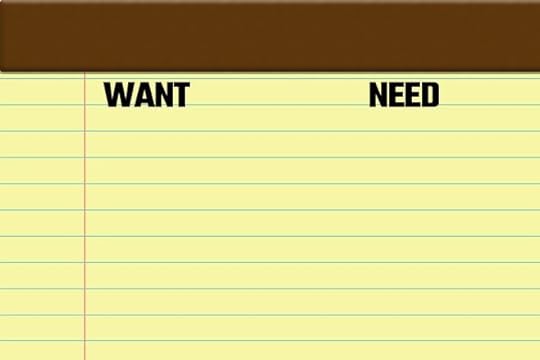
Next, write out all the things you want in life. For example, if you want to become a doctor, write that down under “want.”
Then, list what you need to do in order to achieve that goal. For example, you might list:
Research medical schoolsBook an information interview with my doctor to ask about this careerWatch videos about the learning journeyTake qualifying example tests onlineThis exercise is a very simple way to calibrate your attention on exactly how to increase your intelligence in a specific field.
How To Increase Intelligence: 7 IQ Boosting ActivitiesNow that you know how to separate your wants from your needs, let’s look at additional activities you can start practicing today.
One: Boost Your CardioI try to get to the gym at least once a week. The benefits to intelligence are too large to miss.
As published in the journal Neuroscience, regular cardio exercise is incredibly important from cognition.

One study in particular found that exercise improves “synaptic plasticity and neuronal excitability.” In other words, your brain is like a garden and exercise makes your brain wake up like flowers opening to the sun.
Two: Meditate DailyThere are a lot of reasons to meditate, and reducing mind wandering is one of them.
As reported in Psychological Science, people prone to distraction are especially helped by even just a simple meditation practice.
One reason meditation works so well is because meditation increases memory capacity. Because meditation trains you to continually bring your awareness back to a basic level of consciousness, your procedural memory improves.
In other words, coming back to a state of focus becomes an autopilot procedure. That way you can learn a lot more, faster. Your intelligence will increase naturally as a result.

For more on both simple and robust meditation techniques, I suggest reading The Victorious Mind: How to Master Memory, Meditation and Mental Well-Being.
Three: Read In 90-Day Knowledge MissionsPeople get interested in topics, but then give up too easily.
But the trick to increasing your knowledge and ability to learn intelligently is persistence.
Rather than getting interested in reading just one book on a topic, you want to read several. That way you develop what is called “pattern recognition.” 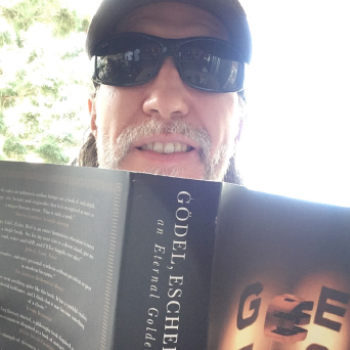
So why 90-days of reading on a particular topic?
Well, a lot of numbers around positive habit formation get tossed around: 21 days, 66 days, etc.
But as Richard Wiseman reports based on research in his book 59 Seconds, 90 days is the closest number.
And if you commit yourself to 90-day reading missions, you’ll not only learn enough about a topic to legitimately know a decent amount about it. You’ll instill the habit of reading for depth.
As a result, you’ll develop more pattern recognition, spot more patterns and connect the dots in the future with much greater ease.
Four: Learn a Musical Instrument

Musicians enjoy many benefits.
For one thing, it’s been proven that they can pull details out of conversations better in noisy crowds. This finding probably relates to the pattern recognition benefits you’ll get from mission-oriented reading.
Music also helps with language acquisition because musicians become expert at handling a variety of sonic input sources. It’s like they can juggle sounds with their minds.
The best part? Musicians are able to speak a language of their own with other instrumentalists. That’s why I have always kept up my own musical abilities, and often take on 90-day music memorization challenges.
Five: Create New ThingsI’ll never forget when my fellow memory expert Mark Channon told me about how his son created a game.
He went through everything from initial planning to product design.
Not only did this set the stage for learning about game design, but also enabled him to learn better during the second iteration.
Likewise when I write new books. Because the new goals I set are based on the existing competence I already have, I’m able to quickly discover industry practices, learn them and put them to use.

As reported by Science Daily, the brain literally changes itself as we create. The existing neural networks become stronger and new ones form.
Note: creating new things should not become a game of perfectionism. After all, perfectionists aren’t even perfect at being perfect.
Instead, like Mark’s son, understand that just about everything is in beta and you can always improve on the second iteration. Basic intelligence involves allowing yourself to make mistakes or miss critical details so that you can improve later.
Six: Explore Historical IQ-Boosting PracticesA lot of people think IQ began with Alfred Binet in the early 1900s. Although he might have designed the first IQ test, he was hardly the first person to think about how intelligence could be boosted.
For example, many people practiced Pythagoreanism and actively promoted intelligence-boosting activities. Although many of their practices were based around math, they debated, meditated and trained their memories.
Simonides of Ceos, another Greek, is considered one of the first teachers of memory techniques.
But it was Ramon Llull with his ars combinatoria that many people attribute to the early origins of formal logic. Llull’s influence on Leibniz, for example, is well known.
Later, in the 1600s, Giordano Bruno would revise ars combinatoria in a big way, and you can use a memory wheel in a simple way to think better:
https://www.youtube.com/watch?v=0cYDm...
There are many more thinking tools like this that will increase your intelligence if you explore them. What makes them stand out in my mind is that these tools help you think categorically and see the world as organized by genres of information.
By doing so, you rapidly help yourself reduce complexity and see the connections between things. You’re also able to mentally organize them in much more structured ways.
To learn more about such older techniques, I suggest you enrol in this:
Seven: Get Proper Brain ExerciseBy proper brain exercise, I mean activities that you conduct in your brain, not with an app.
Or if you’re going to use an app, follow Dr. Christine Till’s research. As she found, people get barely any results from playing brain games unless they follow-up with a personal trainer.
What counts as proper brain exercise?
It must incorporate new learningIt must be reasonably complex with increasing challengesIt must be varied and interestingIt must be engaged in frequentlyHere’s one such brain exercise you can try:
https://www.youtube.com/watch?v=uJbRK...
How to Improve Cognitive Function Over the Long HaulThe most important thing to realize is that keeping mentally sharp is a marathon, not a race.
It’s one you must be intimately involved in. No one can improve your intelligence for you.
And as I hope to have demonstrated, all you have to do is start by improving your ability to learn new things.
Everyone can work on this. In fact, doing so is the hallmark of intelligence.
This is the reason why people flock to know what intelligent people are reading. Reading is one of the major ways to develop and maintain your ability to learn.
As is persistence and taking steps to develop the mental strength we all need to be consistent. By focusing on both creating and completing goals, you will rapidly become smarter.
As I often like to say, S.M.A.R.T.E.R. = Serious, mature and ready to embrace reality. And the reality is, the world needs as many reality-embracing people as possible.
So what do you say?
Are you ready to increase your intelligence and join the ranks of those working to improve the world?
September 1, 2021
How to Remember Conversations (4 Secret Tricks)
 Do you wish you knew how to remember everything you hear?
Do you wish you knew how to remember everything you hear?
If so, you might feel like you’re a poor listener because you forget so many details.
Worse, you wind up losing out on so many opportunities to participate in the present and take action in the future.
For example, let’s say someone mentions a book.
You know you just have to read it because it’s going to help you conquer an important goal.
But after you leave your meeting, you not only forget what the book is called. You even forget that anyone mentioned the perfect path existed for you in the first place.
Good news:
There’s a way to eliminate this problem from your life forever.
On this page, I’ll show you how to remember all the important details in any conversation from now on.
You’re about to become a “Warrior of the Mind” who never forgets important details again.
Let’s get started.
How to Remember Conversations Better In 4 Stepshttps://www.youtube.com/watch?v=_Iuqf...
The steps you’re about to learn begin with a meta-step. You need to do this first in order to see any improvement in your memory for remembering everything you hear.
Commit .
I know, I know.
Some people are already clicking the “back” button because some crazy teacher on the Internet is trying to hold you accountable to your goals.
But we all know it’s true.
Those who succeed at anything are committed to learning skills and practicing.
And that’s all that I ask in the conversation we’re having now:
Remember the need to commit so that you can improve in life.

With that in mind, here’s what I want you to commit to first:
One: The Spatial Memory Hack That Makes Every Bad Listener GoodThe first thing you need to do is start becoming more aware of the details as they fly past your ears.Then you need to grab ho
ld of them and pin them into place.
To do this, you’ll want to learn a special technique called the Memory Palace.
There are a few ways to use this technique for conversations and we’ll get into them.
The first thing to understand is that you can use rooms to “place” ideas that you want to memorize.
For example, let’s say the friends Janet and Tina are hanging out in a cafe.
Janet tells Tina about a book that will help her improve her memory. The book is called The Victorious Mind, by Anthony Metivier.
To use a Memory Palace, Tina takes the difficult new title and connects it with information she already knows. She then mentally places this familiar association in the corner of the cafe.

By focusing on a location in a room and placing an association, you have a reference point you can return to later.
Let’s say Tina’s a fan of the show Victor Frankenstein. The book is by Anthony Metivier, so she imagines Victor handing his mind to an ant after a battle. He’s feeling victorious when he does it.
Now, this association is not a one-to-one correspondence. But later when Tina searches for the book on Google, she’s going to think back to the corner of that cafe and remember the key words: Victorious, mind and Anthony based on the associative-imagery.
These are the basics of the Memory Palace technique.
Two: Elaborate Everything Your HearNow that you know about using the space around you, exaggerate and elaborate everything about the association you just made.
Instead of just having Victor Frankenstein hand his mind to an ant, imagine his mind exploding like a bomb.

Make sure to make your associations multi sensory. That way, they’ll be even easier to remember later.
Hearing the sound of the explosion and feeling its force in your imagination will make the memory much stickier when you think back to that corner in the cafe.
This kind of elaborative encoding can feel difficult when you’re new to using these techniques.
Don’t fret.
These visualization exercises will help you develop the skills in no time at all.
The trick is to have a system for adding the exaggerations. I use the KAVE COGS formula:
KinestheticAuditoryVisualEmotionalConceptualOlfactoryGustatorySpatialOne way to practice running through each of these is to run through them all while developing your first pegword method.
Three: Practice ScalingBy this point, you’re probably thinking…
“Great.
I know how to memorize just one detail.
What about the thousands of details I encounter in conversations every week?”
Well, we all start somewhere. If you can’t memorize one detail, there’s no point in worrying about how to memorize thousands of them, right?
Scaling up to multiple details is easy, but you need the basics mastered first.
Then, to scale is easy, provided you follow this simple recommendation:
Know how to turn any room into a Memory Palace with at least 8 Magnetic Stations in it.
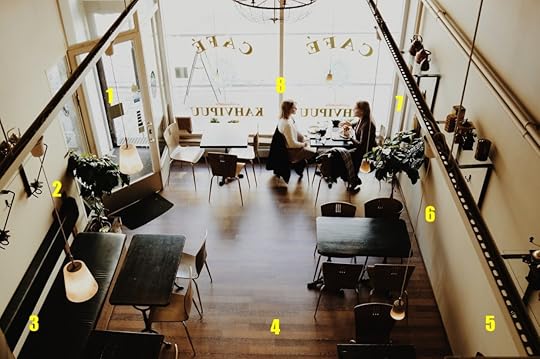
Using a simple number system, you can turn any room into a Memory Palace that will help you recall every important detail in any conversation.
This is what we call a “Magnetic Square” in the MMM Masterclass. It’s one of several different ways to use the Memory Palace technique.
I like this for cafe meetings because it makes it easy to turn any room into a powerful memory tool.
You can also learn how to expand it into a “Magnetic Cube,” and if you’d like all the details on more variations, this free course should do the trick:
The point is to build your skills gradually. Learn to memorize a few details from conversations first. Then scale.
And remember:
You don’t actually have to be in the room you’re using to remember the details of any given conversation. You can think about any building or location around the world. You just need to prepare the Memory Palaces you want to use first.
Four: Practice With News Videos And PodcastsNow that you know how to retain information when listening, let’s give you some practice drills.
When listening to remember, using the news and podcasts makes for great practice. One is visual and audio where the other is purely auditory.
When watching news, you can use the screen as a Memory Palace to encode details as they emerge.

Practice memorizing conversations in real time by turning your TV into a small Memory Palace.
This small space might allow you to memorize only four details, but it keeps you focused on the practice. If you get really good, you can also learn ways to reuse Memory Palaces.
You can also use the body of the reporter to capture and pin details:

Practice turning the body into a Memory Palace by using news anchors. Then use the bodies of your friends or people at meetings to remember what they say during conversations.
Then, when you’re used to doing this with people on TV, you can transfer linking details to the bodies of people with whom you hold conversations.
When it comes to podcasts, you can use your smartphone, or even try using objects, like I talk about in this video about my memory practice habits:
https://www.youtube.com/watch?v=NyUsL...
How To Retain Information When ListeningSo far, you’ve learned how to use rooms, objects like TVs and human bodies to encode information you hear during conversations.
When it comes to retention, you’ll want to do a small amount of repetition that fires off the KAVE COGS we talked about previously.
For example, I recently met with a private coaching client named Michael.
Within the first few minutes of speaking, Michael told me about a friend named Kerry, a math teacher named Igor and talked about Naples, Harvard, studying chemistry for a Regents exam and Upstate New York.
Using the association technique you learned above, I placed all of these details around the screen of my computer as we Skyped. But I also quickly revisited each and went through the KAVE COGS.
To take just one example, when he mentioned he had a friend named Kerry, I used KAVE COGS to associate that name with Kerry King, the guitarist in Slayer.
I felt Kerry’s guitar as if I was holding it myself, heard a Slayer song, felt emotions associated with it, and so on.

Hearing music, feeling the sensation of a guitar and feeling emotions help memories stick very quickly.
You might think it’s a lot of heavy lifting to go through 8 “Magnetic Modes” so quickly, but with a small amount of practice, it’s more than easy. It’s incredibly fun.
Remembering For The Long TermIf you want to hang onto the information from conversations for the long haul, please make sure to use the Recall Rehearsal patterns taught in the MMM Masterclass.
You’ll also do very well to:
Write down what you heard laterSpeak about the key details to verbalize the info in your own wordsDo any follow up readingListen to any podcasts or videos that will deepen the informationAlso, understand that there’s nothing wrong with taking notes during conversations.
Although I can memorize in real time, I still sometimes jot things down. In fact, it’s hard to test if you were correct about certain details if you don’t write the info down.
For example, a friend of mine suggested that I visit Mt. Nebo.
Memorizing the name of this location was easy.
But I wanted to make sure what I memorized was accurate later, and we were in a noisy cafe and I wasn’t sure if I’d heard the correct pronunciation.
That’s why I wrote it down.

It’s perfectly okay to take notes during conversations. Sometimes you need to in order to make sure you have pronunciations correct.
Remembering Things You Want Or Need To Do In The FutureSometimes people tell you things that involve the future, like something you want to look up or visit.
This taps into what scientists call prospective memory.
To remember future things, you have at least two options:
Mnemonic CalendarSpatial labellingUsing a Mnemonic Calendar involves learning the Major System. This lets you create images for every number.
For example, when I wanted to remember that my friend Nick’s birthday is October 25th, I imagined a nail going through a pumpkin. Nail is the image for 25 and pumpkin is the image for October.
When it comes to spatial labelling, I’ll give you an example.
As I discussed in this TEDx Talk, my friend Ben told me the title of a book I absolutely needed to read.
I usually don’t carry the Internet with me (to protect my memory). I remembered to order it when I got back home by placing an associative image of Happiness Beyond Thought at my desk.
Then, when I got home, I literally walked into a Memory Palace and was reminded to look the book up and order it.

You can do this with all kinds of things you need to remember, from groceries for a recipe, making a dentist appointment or memorizing your credit card so you don’t have to pull it out every time you shop online.
Remember Everything You Hear?Frankly, I’m not sure anyone needs to remember everything.
The trick is being able to remember the information that matters.
Knowing exactly what that information might be is its own skill, and it involves developing pattern recognition and discernment.
Being able to memorize will naturally guide you to developing these meta-skills.
And that means that the best time to get started was yesterday.
The second best time is now.
So what do you say?
Are you ready to remember more from the conversations you hold?
Get some Memory Palaces created, learn to associate and please keep me posted on your progress updates along the way!
August 11, 2021
How to Memorize 70 Decks of Playing Cards For Charity: A Memory Training Convo with Braden Adams
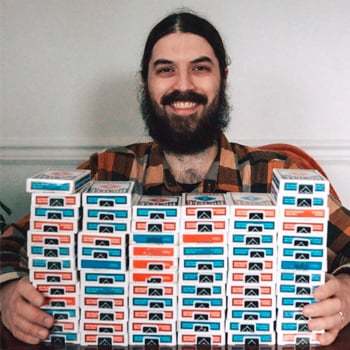 Imagine memorizing 70 decks of playing cards to raise money for Alzheimer’s.
Imagine memorizing 70 decks of playing cards to raise money for Alzheimer’s.
Not just to fund research into curing the disease, but also to support front line workers who help care for the victims of this cruel disease.
Well, that’s the goal memory athlete Braden Adams set for himself.
Think about this for a second: That’s 70 times 52…
3640 cards, all shuffled up.
That’s a lot of Memory Palace prep and Braden and I dig into that topic, including the “Shadow” technique used for encoding the cards – a powerful way of applying mnemonic tacts you’re not going to miss.
I haven’t developed the Shadow for myself (yet), but rest assured it’s much more robust than this technique for memorizing a deck of playing cards.
But it’s the meaning of Braden’s mission I want to focus on above all.
It is incredible.
Why?
Because memorizing cards is a perfectly aligned symbol for the battle against conditions like Alzheimer’s.
After all, the disease mixes up your thoughts and memories, but when you have the kind of memory skills Braden has developed for yourself, no matter how shuffled those cards get, you can still lay everything out in perfect order.
https://www.youtube.com/watch?v=VIO1Z...
To train, Braden has been using the International Association of Memory software and live streaming the journey to 70 decks on Twitch.
I wanted to learn more about this training journey and help spread the word about his mission.
His tips on creating a proper Memory Palace are golden.
And as we speak, people have already been donating to the cause!
If you’d like to toss in a few Magnetic clams, as I’ve done myself, you’ll find the donation link in the description or can simply type this handy link I’ve created for the cause.
But you can also consider donating to any Alzheimer’s charity near you during this drive.
You can also watch Braden memorize and recall the decks live on August 28th on his stream by visiting his Twitch page.
Until the event takes place, if you like digging deep into the nitty gritty about how memory techniques work and how you can use them to complete MASSIVE memory projects like memorizing 70 decks of cards, I think you’re going to love this discussion.
For another interview with Braden, here’s the last time he was on the Magnetic Memory Method Podcast.
It’s also a great conversation packed with valuable info!
For more on Braden, follow him on:
July 28, 2021
Black Belt Memory Review: Is Ron White’s Course Good?
 If you’ve spent any amount of time looking into memory improvement courses, you’ve come across the name Ron White.
If you’ve spent any amount of time looking into memory improvement courses, you’ve come across the name Ron White.
But you might be wondering…
Is his Black Belt Memory course any good?
In a word:
Yes.
And if you’ve struggled with other memory improvement books and courses, his approach might just be the ticket.
One reason why is because the course makes you earn your future lessons. You don’t just get to the next level by skimming and skipping around.
You have to actually complete tests in order to progress.
And in case you’re wondering, I know this from experience. I’ve completed the course myself. Here’s my Black Belt certificate:

Receiving my Black Belt in memory after taking Ron White’s training was a great feeling!
Although I already know a fair amount about memory techniques, I still learned new things.
The best part?
I had a lot of fun going through the program too.
And on this page, I’ll tell you more about what I learned and what you can expect.
But first, let’s talk about the man who created the course before digging into a full Black Belt Memory Review.
Who Is Ron White?Ron White is an author, speaker, seminar leader, course creator and talented YouTube personality.
He has also served as a soldier and won several national memory competitions.
For example, he won the USA Memory Championship twice, in 2009 and 2010.
When it comes to the World Memory Championships, his records are also impressive.
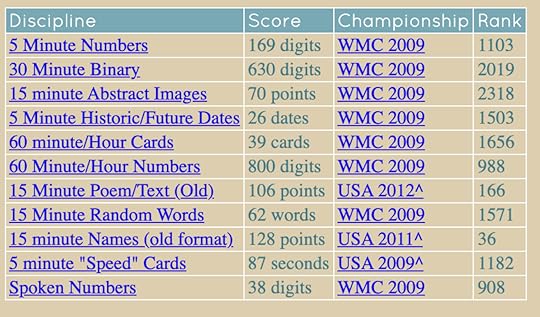
He’s also completed incredible memory demonstrations, such as the 7000 pieces of information involved in the Afghanistan Memory Wall project.
I wanted to learn more about these experiences, which is why I’m so glad Ron sat down with me for a long form conversation.
https://www.youtube.com/watch?v=Y1JcM...
I hope by now it’s obvious to you that Ron White’s memory training course is more than legit.
And the man is not only a memorizing machine when it comes to using mnemonic strategies.
He’s a great teacher and provides tons of inspiration.
Ron also knows his history, so it was fun talking with him about some of the old memory books that contain powerful tips and tactics you won’t want to miss.
Black Belt Memory Review: What You Need To KnowAs I mentioned before, this course is unique in that it requires you to earn your progress.
To be honest, I initially thought this was a little annoying. I really just wanted to check things out.
But that’s the problem isn’t it?
We get courses, skip around and then throw our hands up in the air and say… “Nothing new here.”
That’s wrong in nearly every case, and when you go through this program as Ron has designed it, there’s a lot new to learn.
Keep in mind too that “new” means a few different things:
It can be completely new to you because you’ve never heard of something like the Memory Palace or the Major SystemIt can be new because you’ve not thought about classic techniques through the lens of someone else’s experienceIt can be new because you’ve never deployed a classic technique in quite the same way as Ron hasSo when Ron gets you to go through the training sequentially, it doesn’t matter whether you’re a complete beginner or an old master. You’re going to learn something new from the program.
The Filing SystemRon approaches the arrangement and encoding of information through what he calls files.
These can be used in different ways.
For example, you can have files that serve as numbers and images at the same time.
It’s kind of like the pegword method, but with more possible uses. You can use the filing approach to easily make any Memory Palace much more robust, for example.
Unique Approaches to the Major SystemAs Ron shared in the conversation we recorded, he combines the body Memory Palace with the Major System in a way that stems from Mega Memory.
I think it’s a brilliant adaptation. I wish I would have thought about it myself!
The coolest thing about it is that you can apply it to other bodies and use those bodies as files distributed throughout a Memory Palace.
In this way, any figure you place can instantly have ten individual stations instead of just one.
Review TipsRon’s Black Belt Memory is one of those rare memory training courses that goes through what matters most in memory: review.
You see, so many people treat techniques like the method of loci as if it were meant to be some kind of “eternal” treasure chest.
But that’s not the way it works.
Rather, these tools give us a solid means for reviewing information in a way that triggers what memory scientists call active recall.
If you aren’t following these patterns in an optimal way, your brain simply won’t form memories reliably.
And since reliable memory is what we want, Ron makes sure you know about it.
Holistic Memory HealthAs if all that weren’t enough, Ron makes sure you know about diet, hydration and fitness.
Face it:
We’re all getting older by the minute and we need to keep both our bodies and our brains as fit as possible.
The program doesn’t go as deep into this topic as it could, but I’m glad the basics are touched upon.

Memory Expert Ron White with Dr. Oz
And there’s even a cameo with Dr. Oz!
Will You Earn A Blackbelt For Your Memory?As I hope you can tell, I definitely think you should take this course.
And you might find that a bit confusing. After all, I’ve got courses of my own to offer, like the Magnetic Memory Method Masterclass.
The answer is simple:
When I taught philosophy as a professor, I never once said, “Only read Plato. Forget all about Aristotle.”
That would be foolish.
The reality is that you only get a full understanding by going through as many programs as you can.
Of course, there are some out there you can definitely skip.
But I’m very glad that I went through Black Belt Memory and grateful Ron took some time to have a detailed chat.
So if you want more benefits from his experience and some of the “next level” ways you can improve your memory, give Black Belt Memory a try.
I think you’ll be glad you did!
July 21, 2021
Why Teaching And Teachers Fail You: A Conversation With John Danaher
 Don’t you hate it when you learn NOTHING from a course?
Don’t you hate it when you learn NOTHING from a course?
Me too. I can’t stand it.
And it’s the teacher’s fault right?
Well… not so fast.
It’s entirely possible that even the best teacher is fighting a tradition and system that’s rigged to fail.
Not only that, but there’s the question of what makes an experience “meaningful” in the first place, let alone educational.
That’s my I’m glad John Danaher had some time to chat about a compelling article he wrote.
It’s called:
“The Trouble with Teaching: Is Teaching a Meaningful Job?”
What I love about this article, and John’s blog overall, is the deep analytical thinking about the topic.
https://www.youtube.com/watch?v=PiCaq...
I also really like his book “Automation and Utopia,” but it was this first article that got me hooked on his writing style.
It’s very clean, clear and direct. Sometimes VERY direct at how it demolishes some of our ideals about things like teachers and teaching.
Sure, eschewing the romantic can be painful.
But Radical Honesty is what the MMM Initiative is all about.
So do as I’ve done and follow John on Twitter so you don’t miss a thing he shares.
And please read Automation and Utopia. It’s clear and thought-provoking.
You won’t regret it!
Photo Credit: Aengus McMahon
July 14, 2021
How to Memorize Paragraphs, Sentences, and Passages Fast
 Want to know how to memorize a paragraph fast?
Want to know how to memorize a paragraph fast?
Tired of the standard advice about using linking and rote repetition?
I hope so, because it’s bad advice.
Why?
Because linking and “chunking” are often more overwhelming than repeating sentences over and over again.
Well, you’re in luck.
I’ve memorized many paragraphs and on this page will show you how to do it.
You’ll learn the technique progressively and exactly how the old memory masters used to memorize entire books.
Back then, they had to carry entire books in their heads. Books were rare and expensive back then. And they were too heavy to carry on their backs. That’s why they needed the techniques you’re about to learn.
And those techniques still work today.
So let’s dive in.
https://www.youtube.com/watch?v=x9aep...
How To Memorize Sentences FastBefore you can memorize an entire sentence, you need to be able to memorize words.
The ancient memory master who wrote Rhetorica ad Herennium circa 90 BCE made this point very clear.
To paraphrase, the author says:
Those who wish to memorize more difficult things must first learn to memorize words.
Learning how to memorize vocabulary is very good advice. It is the path to being able to memorize more than one word at a time.
So how do you do it?
Develop skills with association. You need to be able to look at the letters that form a word and connect them to other words.
Developing Associations QuicklyTo do this quickly, you want to develop your skills by learning the pegword method

Let’s say the sentence you want to memorize is from Plato’s apology:
Someone will say: Yes, Socrates, but cannot you hold your tongue, and then you may go into a foreign city, and no one will interfere with you?
Later, you’ll be able to compress “Someone will say” into a single image. But for now, just focus on “Someone.”
If you have your tools ready, maybe a famous actress like Suzanne Somers has already come to mind. Maybe she has a sum of gold in her hand. She may even be under the summer sun.
Use Dynamic And Gripping AssociationsBy making alphabetical-sound associations between like-sounding words that evoke dynamic images, it’s easy to make associations.
I highly recommend you develop parts of your pegword system based on celebrities so that these associations can be richly evocative.
I sometimes refer to this as a “Celebrity List.” You can also build them from:
PoliticiansFriendsFamilyTeachersMusiciansArtistsAuthors The point here is this:
The point here is this:
It’s easier to imagine a familiar association doing something that triggers back the target words when you’re memorizing sentences.
For example, to add “will say,” you can have Suzanne Somers with a character from the movie Good Will Hunting, or Will Smith. She can be saying something to Will Smith, or even to Tom Sayers.
From there, move on to the next word. And as you go, I highly suggest you place these associations in a Memory Palace. That way they’re not floating in the void of your mind. It will also help with recalling the sentences word-for-word later.
How To Memorize A Paragraph QuicklyFirst, count how many sentences you’re dealing with. Read it aloud and get a sense of its general tone.
Notice any words that leap out at you or that you don’t understand. If you need to look something up, now is the time so that you’re not slowed down later.
This point is important:
If you truly want the best way to memorize a paragraph, you need to remove all obstacles first.
(This also means that you’ll want to have at least one “Celebrity List.”)
Once you know how many sentences are in the paragraph, create or identify a Memory Palace. It should have enough space to accommodate the amount you need to memorize.
If you don’t know how to create a Memory Palace, register for this:
You want your Memory Palace design to have some structure based on the paragraph.
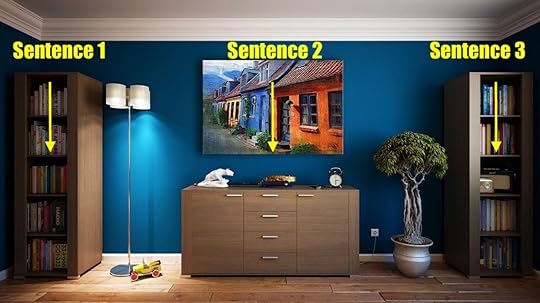
For example, I prefer to mentally “paint” my sentences in rooms from top to bottom. In the Magnetic Memory Method Masterclass, we call this the “Pillar Technique.”
With this approach, I’ve been able to memorize up to 17 words on a single Pillar.
Usually, you can get 4-8 sentences in a single room when you’re using the walls and the corners (8 Pillars per room).
In the beginning, you might be be able to memorize only around 1-3 words per station. Don’t stress it: We all start somewhere.
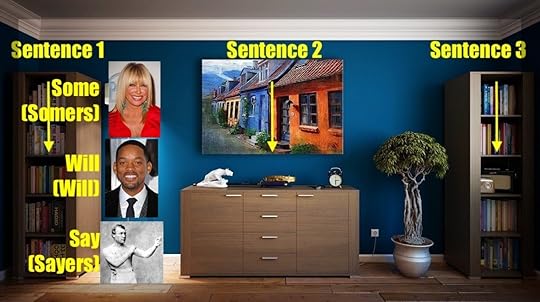
Let’s say that you’ve mastered paragraphs.
What about how to memorize a long passage?
That’s exactly what I faced when I had to memorize and then deliver a speech at a TEDx event.
The talk was 1506 words divided over 60 paragraphs!
Luckily, I had no problem memorizing it quickly with this as the result:
https://www.youtube.com/watch?v=kvtYj...
Now, there are different Memory Palace examples you can explore. In this case, I used an entire neighborhood. It started in a building, but then moved out over several streets.
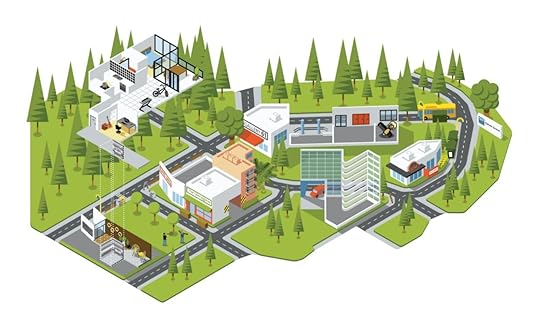
All you have to do is start preparing Memory Palaces like these in advance. With a general estimation, you should be able to accommodate any passage of any size in most neighborhoods.
And if you need more space, just add more buildings and neighborhoods.
One of the benefits of using neighborhoods is that you can then walk “through” the passage you’ve memorized.
Walking was one of the tips my speaking mentor Thomas Krafft suggested for instilling how I memorized this long passage of text.
I almost ignored the suggestion, but am glad I gave it a try. It’s not only good exercise, but does seem to deepen the associations and speed up the process.
Getting Sentences, Paragraphs And Passages Into Long Term MemorySo far we’ve talked about making associations. Memory scientists call this elaborative encoding.
However, to make the content we memorize stick, we also need active recall.
In brief, this means making the brain work a little to recall the associations and the target paragraphs.
To do this, you simply call back to mind the Memory Palace, then the association, then the information.
With training, you’ll find that the paragraph comes back to your memory faster than either the Memory Palace or the associations.
There are a few more ins-and-outs when it comes to using active recall for paragraph memorization. I call these my “repetition rules.”
https://www.youtube.com/watch?v=8nOwZ...
Advanced: How to Memorize Numbered ParagraphsLet’s say you not only want to memorize a paragraph. You also want to know exactly which sentence is 5th into the paragraph.
Or perhaps you need to know the Bekker numbers of a philosophical text. Scripture memorization often also involves memorizing numbered paragraphs.
In this case, you’ll want to employ an additional mnemonic device called the Major System. You use this to create a full 00-99 PAO. This means that you have an image for each number from 00-99.
That way, you can number every station in a Memory Palace in advance. Each station will have a pre-assigned association that you can trigger any time.

Although ambitious, this advanced approach to memorizing paragraphs is tremendously useful.
For example, it can help you compare two passages in two different books.
You Really Can Conquer ParagraphsSo long as you’re willing to set yourself up with the needed memory techniques, memorizing any paragraph will be a breeze.
Make sure that you go one step further, however. Effective learning is not just about regurgitating entire sentences, paragraphs or entire passages.
You also need to be able to understand the key points.
And to do that, I suggest you:
Write your own summaries of the materialMind mapping key ideasHave discussions with others about the facts and conceptsFollow-up with more reading from multiple sourcesSeek video and audio supplements to experience similar content in different mediaIf you’re memorizing the paragraphs for an exam, taking practice tests is highly recommended as well.
The more you include variety, the more opportunities for different levels of active recall you’ll get. And that means more memory benefits.
So what do you say?
Are you ready to get out there and start memorizing some paragraphs? If you have any questions, please just pop them below. I’ll get back to you a.s.a.p.




